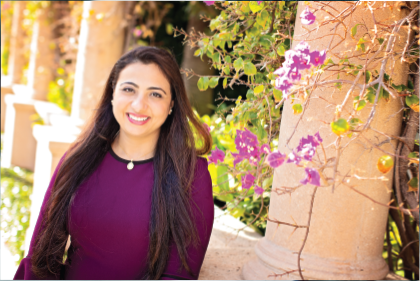 When Reshma Khan, MD, a rheumatologist at the Family Arthritis Center, Jupiter, Fla., relocated from Michigan three-and-a-half years ago, she missed the camaraderie and friendships she’d made in Michigan.
When Reshma Khan, MD, a rheumatologist at the Family Arthritis Center, Jupiter, Fla., relocated from Michigan three-and-a-half years ago, she missed the camaraderie and friendships she’d made in Michigan.
“I’m a very social person, and after finishing my research, residency and fellowship in Michigan, I missed those close friendships [when I moved to Florida],” Dr. Khan says. She decided to take action to remedy the situation.
In December 2015, Dr. Khan invited 10 women rheumatologists to join a Facebook group (Women Rheumatologists Group; WRG) where members could share expertise, network, get input on difficult cases and empower each other in their careers.
“We’re living in an era of technology, and as physicians, I think it’s important that we use technology efficiently,” Dr. Khan says. “In our Facebook group, we can ask general questions about cases without identifying patients and discuss current news related to the rheumatology field.”
Dr. Khan says members have also used the group to post job openings when they’re looking to add a rheumatologist to their practice, look for a job opening when a member is moving and help patients locate a new rheumatologist when they’re moving out of state.
“It’s a grassroots organization that has grown organically,” Dr. Khan says. “We celebrated our third anniversary as a group this past December, and now have 790 members from across the United States and in 17 countries around the world.”
A Place to Connect
Dr. Khan says it’s not unusual for rheumatologists to use the Facebook group as a sounding board, whether they are relocating to a new area and seeking salary and housing information or seeking empathy after a longtime patient dies.
“The group is nonjudgmental, and if someone loses a patient or has a bad outcome, they know others in the group will be able to relate and offer empathy,” Dr. Khan says.
Although the group is online, it hosted a dinner at the 2018 ACR/ARHP Annual Meeting and had 50 members in attendance.
“Currently, our group serves rheumatologists who are finishing their fellowships or are well into their careers,” Dr. Khan says. “In the future, we’d like to look at mentoring residents and encouraging medical students to consider a career in rheumatology to help with the projected shortage of specialists.”
Dr. Khan says one of the most valuable components of the group interface is the ability for members to go online and use specific keywords to search for information on difficult rheumatic conditions.
“It’s easy to get a quick consult from a fellow rheumatologist and to learn their specific treatment plan for a certain condition,” Dr. Khan says. “There may be a treat-to-target plan that one doctor has found works well, and the group offers them the chance to share best practices with their colleagues.”

